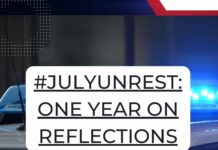Given the sacrifice of the class of ’76, there is an expectation that South Africa’s born-frees will value education and become active citizens. But the youth of today have their own struggles. Jared Hughes told his story to RUMANA AKOOB.
Jared Hughes, 16, Newlands East (Durban)
Being a teenager in post-apartheid South Africa, I’ve been given the gift of choice, and when you aren’t, you could make the wrong choices. This is why I’m able to teach my friends what I learned from the mistakes I made and from my experiences. Newlands East, where I grew up, is notorious for drug abuse and gang fights and we had to deal with our own evils. I never pained myself to achieve ‘A’s in school. It just wasn’t something we stressed about. Staying in school has been my greatest challenge.
Most people I know came from abusive homes. I grew up around people who fought over a R2 coin. Some of my friends wanted to carry knives to school but I reminded them, if you live by the knife you die by the knife. We’ve actually decided to make a pact that we aren’t going to get into anything that doesn’t help our future.
My parents both have their own lives and aren’t around much. No one irons my shirt in the morning, makes my lunch or gives me that emotional support a teenager needs. No one cared when I said I was going to drop out of school in my first year of high school. I didn’t enjoy school. The subjects were hard and boring. It just held me back from making money and having fun. Life was difficult for kids in the ‘70s, and here I wanted to drop out of school at 14 because of my issues.
There was so much going on, I hated my life and I hated facing anyone. I didn’t have parents and I was failing most of my subjects. I had no interest in school and I made it clear to my teachers by not studying for exams and not handing in projects. A teacher approached me and told me what life would be like if I dropped out. His words stuck with me but I didn’t really take notice of them at first.
I’ve been offered drugs too often. People you know from down the road are selling them but offering them for free at first just so you’re hooked. In school, I was told that I had to take them to gain respect from the older boys. It’s hard to chicken out when you’re singled out in front of other boys but I knew what drugs did to them. I didn’t want to end up like them and that’s when I decided to turn everything around.
I think youth in my generation have been permitted to have these problems because of the struggles apartheid kids went through and fought against. It’s a privilege maybe, to rise above certain things and know that you will succeed. I do, however, feel expectations have been placed on youth from people who lived through apartheid because we seem to have things easy or easier.
I don’t expect anything from the government but what message are they sending by throwing us beach parties? Can they not invest that money in combatting drugs in my community or to create a centre for us to spend our free time? Youth Day is a day to remember and reflect. It’s not my day, it’s their day. Those who fought against something I’d never be able to face. I would have given up. They didn’t.
– As told to Rumana Akoob









